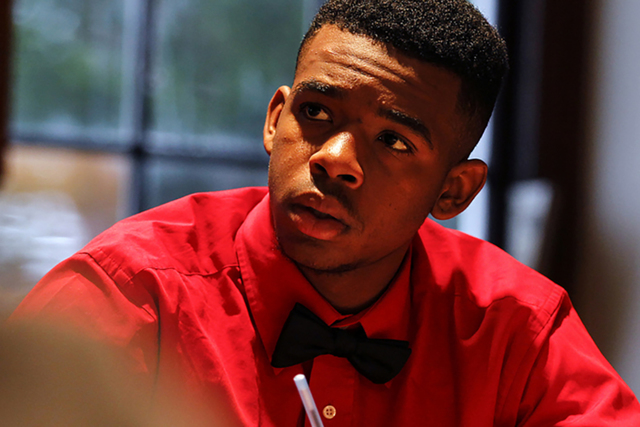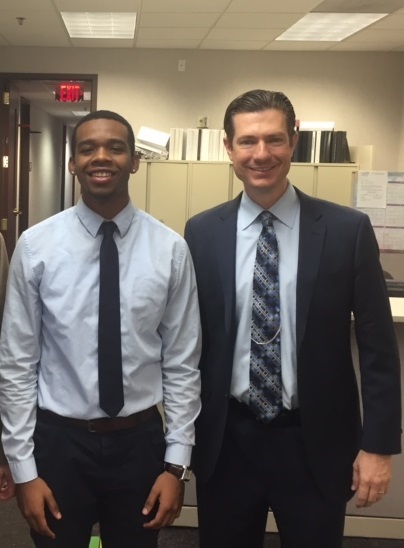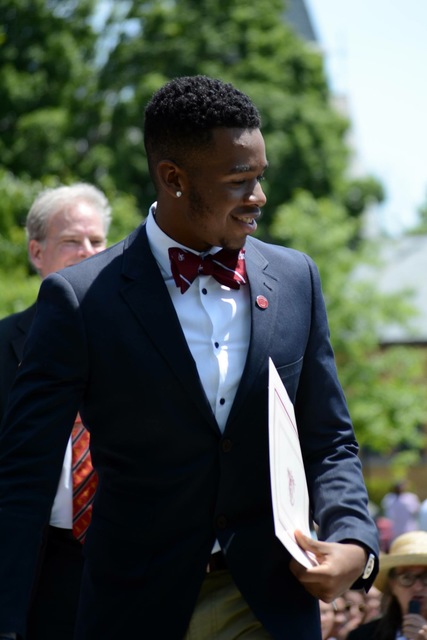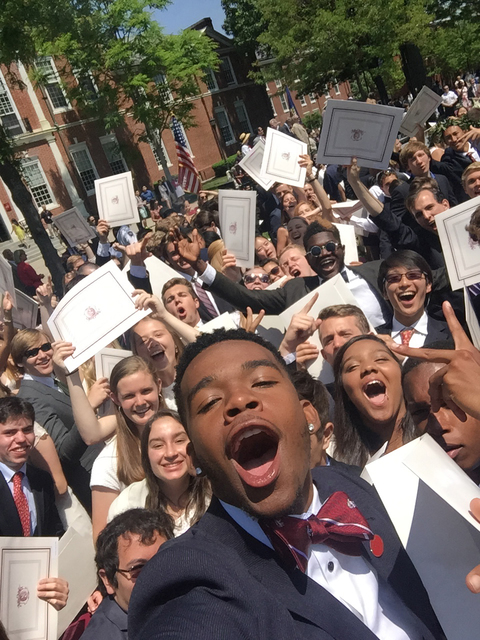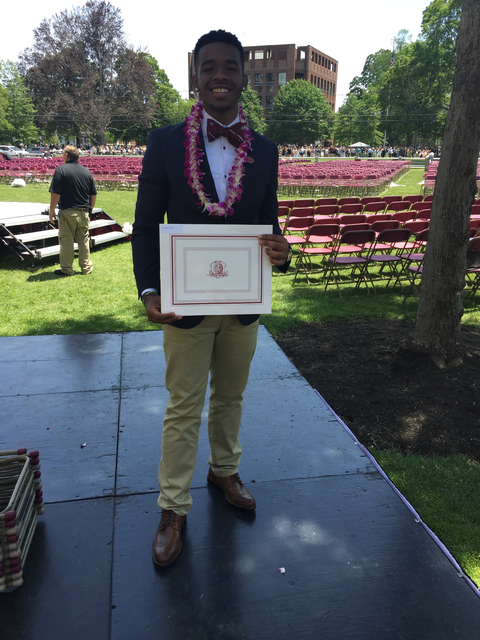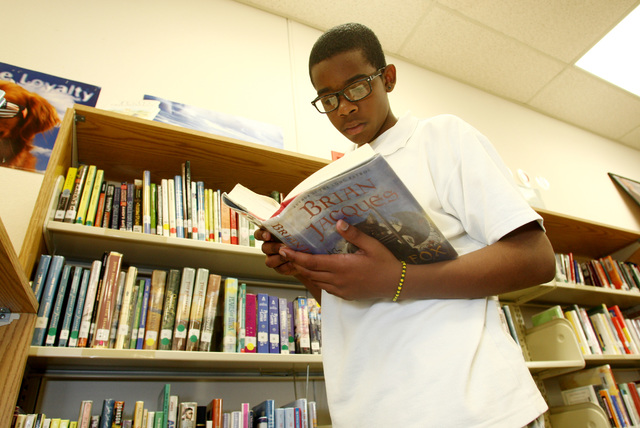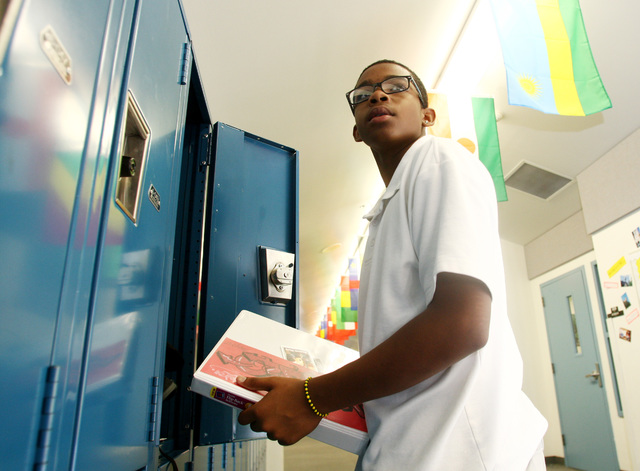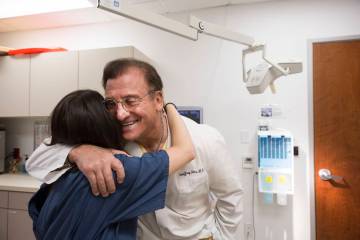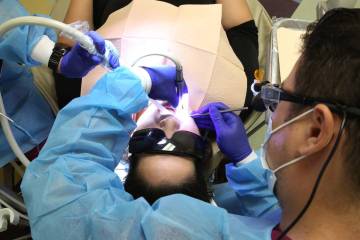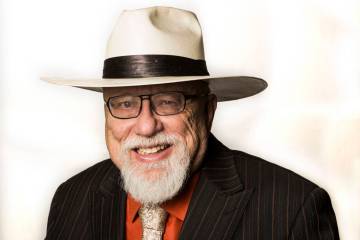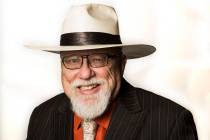Poverty didn’t make him poor: Las Vegan rises to academic success
The story of 19-year-old Lazaro Cesar gives us enduring hope for America, for humankind, in so many ways.
Cesar, the son of immigrants from the Dominican Republic and Cuba, grew up in the projects near J Street and West Washington Avenue in Las Vegas, an area with a per capita income lower than 97.5 percent of U.S. neighborhoods.
His mother worked as a hotel housekeeper; his father was an unemployed painter. Neither had a high school education.
Today, Cesar is a graduate of Phillips Exeter Academy in New Hampshire, regularly called America’s best boarding school. Its tuition is $46,000 a year, and its alumni include Franklin Pierce, the 14th U.S. president; Mark Zuckerberg, founder of Facebook; and Dan Brown, best-selling author of “The Da Vinci Code.”
In earning his high school diploma from Exeter in 2015, Cesar won a scholarship to Howard University in the nation’s capital. The late Supreme Court Justice Thurgood Marshall and Nobel Prize-winning author Toni Morrison attended Howard.
Cesar plans to do his graduate work in finance at the Wharton School of the University of Pennsylvania, the Ivy League school that President Donald Trump credited for helping him develop business acumen.
That Cesar continues on his remarkable journey is a testament to a nation of immigrants that still embraces immigration, parents who want better for their children, Las Vegas educators who identified a child driven to succeed, a school that came to see the value of diversity, and, of course, his own incredible will.
“I am a firm believer life is 10 percent of what happens to you and 90 percent what you make of it,” Cesar said in a phone conversation from Washington, D.C. “People give up way too fast.”
Michael Barton, now chief academic officer for the Clark County School District, notified Exeter that he had an exceptional student in middle school. When Cesar was in the sixth grade at West Prep Academy, Barton was the school’s principal.
“I heard from teachers Cesar was really something,” Barton said, adding that Cesar did great on the admissions test.
Barton knew an educator at Exeter and had been impressed by the 12-to-1 student-teacher ratio there. He was also impressed with a teaching method that has prepared students sitting around a table engaging each other on subjects. There is no lecturing. It is similar to a graduate school seminar.
Less than 20 percent of applicants are admitted each year to Exeter, which has 1,060 students.
Cesar says the critical-thinking skills he gained at the school have helped him immeasurably.
“My analytical skills really benefited — you learn to see things from every angle,” Cesar said.
Barton said Cesar’s mother played a key role in her son’s education and stressed that a major reason she emigrated to America was educational opportunity — not for herself, but for the children she might have one day.
She took Cesar to her workplace and showed him how she scrubbed toilets for a living. She told him she hoped he could do better.
Cesar said his parents’ influence, coupled with what he saw in his neighborhood, pushed him to study.
“When I was 13, I saw a good friend of mine die in a gang thing, and knew I didn’t want that environment,’” he said.
Cesar admits he experienced culture shock at Exeter.
“Students were financially literate, with parents who invested in stocks instead of living paycheck to paycheck,” he said, adding that he hopes to bring more financial literacy to minority communities in the future.
Rosanna Salcedo, Exeter’s dean of multicultural affairs, said the school has come a long way from being just for affluent whites. Diversity that reflects America, she said, is now critical to the school where half the students receive financial aid.
At Exeter, Cesar says there were challenges of being around a large, well-off white population. It’s partly why he’s now at Howard, a historically black institution.
“Many white people are afraid of minorities. They think we’re inherently violent,” he said. “That frustrated me. While I learned many tangible things, I wasn’t growing as a person. But I’m certainly not critical of Exeter overall.”
Exeter, he said, helped him learn there are many people who have integrity and want others to succeed.
“I have seen that at Exeter, in Las Vegas and now at Howard,” he said. “If you want to succeed, people will help you. There are too many people who complain about the lemons in their life and don’t focus on the lemonade they can make.”
Paul Harasim’s column runs Sunday, Tuesday and Friday in the Nevada section and Monday in the Health section. Contact him at pharasim@reviewjournal.com or 702-387-5273. Follow @paulharasim on Twitter.



